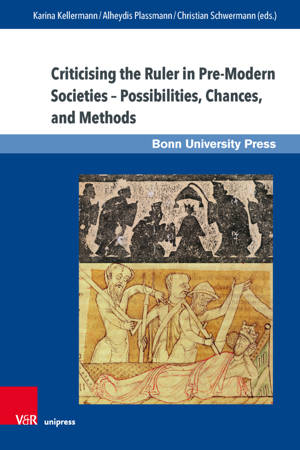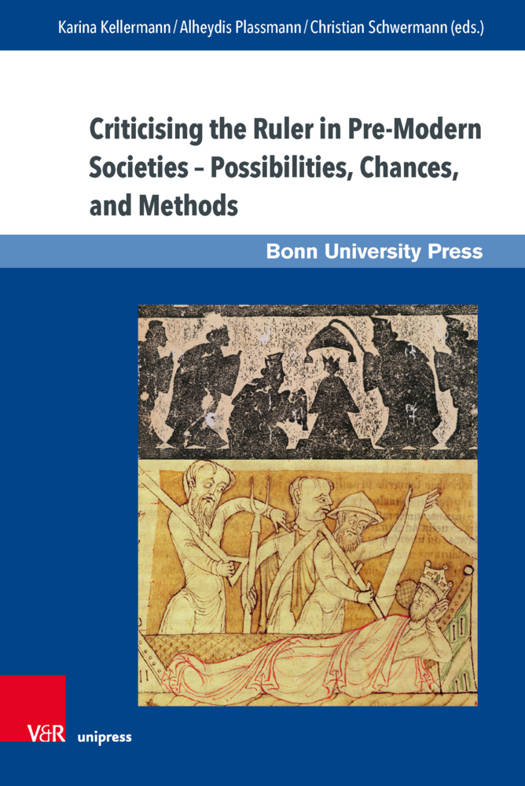
Bedankt voor het vertrouwen het afgelopen jaar! Om jou te bedanken bieden we GRATIS verzending (in België) aan op alles gedurende de hele maand januari.
- Afhalen na 1 uur in een winkel met voorraad
- In januari gratis thuislevering in België
- Ruim aanbod met 7 miljoen producten
Bedankt voor het vertrouwen het afgelopen jaar! Om jou te bedanken bieden we GRATIS verzending (in België) aan op alles gedurende de hele maand januari.
- Afhalen na 1 uur in een winkel met voorraad
- In januari gratis thuislevering in België
- Ruim aanbod met 7 miljoen producten
Zoeken
Criticising the Ruler in Pre-Modern Societies - Possibilities, Chances, and Methods
€ 84,47
+ 168 punten
Omschrijving
When looking at pre-modern monarchical societies, one does not expect to observe fundamental dissent directed at the social order as such or at the political system. As a rule, criticism was limited to individual monarchs, their performance and decisions. While discontent could lead to insurrection and rebellion, which normally only culminated in the ruler being replaced by another monarchical figurehead, the subtler methods of voicing criticism were applied within a framework of legality, of a set of customs or of a code of rules of the game and intended to improve the performance of the incumbent or reform his conduct at court. The various forms of verbal or staged censure of rulers in pre-modern monarchical societies are the subject of this volume.
Specificaties
Betrokkenen
- Uitgeverij:
Inhoud
- Aantal bladzijden:
- 458
- Taal:
- Engels, Duits
- Reeks:
- Reeksnummer:
- nr. 6
Eigenschappen
- Productcode (EAN):
- 9783847110880
- Verschijningsdatum:
- 9/12/2019
- Uitvoering:
- Hardcover
- Formaat:
- Genaaid
- Afmetingen:
- 157 mm x 231 mm
- Gewicht:
- 771 g

Alleen bij Standaard Boekhandel
+ 168 punten op je klantenkaart van Standaard Boekhandel
Beoordelingen
We publiceren alleen reviews die voldoen aan de voorwaarden voor reviews. Bekijk onze voorwaarden voor reviews.








